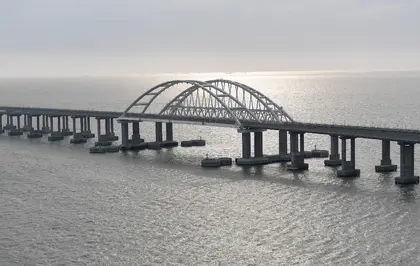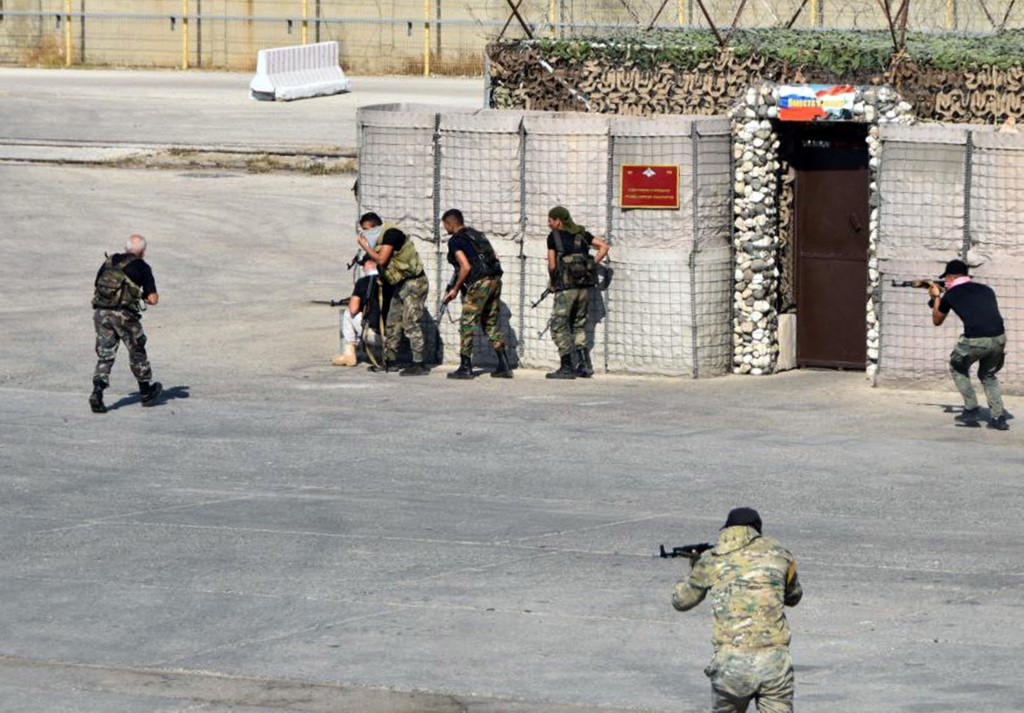Communications between Russian and Chinese business executives, intercepted by Ukraine’s security services and obtained by the Washington Post, reveal that they are discussing the feasibility of building an undersea tunnel linking Russia to the occupied Crimea, to provide a secure transportation route easier to protect from potential attacks by Ukraine.
The talks, which began in late October, were sparked by Russian anxiety about the security of the existing 18-kilometer (11-mile) bridge across the Kerch Strait.
JOIN US ON TELEGRAM
Follow our coverage of the war on the @Kyivpost_official.
This bridge, a crucial logistics link for the Russian military on the occupied Crimean Peninsula, has been attacked twice by Ukraine, highlighting its exposure in times of a full-scale war.
Despite the enormity of the proposed tunnel construction - likely costing billions and taking years - Russia is determined to ensure its control over Crimea, which it illegally annexed in 2014. The plan underscores Russia's growing reliance on China for global support.
Chinese involvement in the project, as indicated by the seized emails, reveals the willingness of one of China’s largest construction companies, the state-owned Chinese Railway Construction Corporation (CRCC), to participate as the general contractor.
The move, however, poses political and financial risks for China due to existing sanctions imposed by the US and the European Union on Moscow.
While the viability of the plan is questioned by experts, the intercepted emails suggest a commitment from CRCC. The emails emphasize a strict provision of confidentiality and a Chinese bank's willingness to convert funds into rubles for the project in Crimea.

Russia Prepares for Ukrainian Airborne Assault in Crimea as Partisans Highlight Growing Defenses
Construction of the tunnel beneath the Kerch Strait is deemed technically feasible but would be a massive undertaking. For instance, the Eurotunnel linking France and the UK took six years and cost the equivalent of $25 billion (in today’s prices).
The use of traditional tunnel-boring technology would be necessary, involving significant costs and military protection.
While completion in time to support Russia's current war efforts is unlikely, experts suggest that Moscow views the tunnel as a long-term investment to secure a link to the contested territory.
For Putin, the connection also holds symbolic significance for which a tunnel would be a physical manifestation of his ambitions.
China, on the other hand, may seek partial ownership of the tunnel, as a means of further expanding its global infrastructure portfolio.
The project's underground nature reduces some risks of military attack, but potential exposure of its entrance (and exit) to Ukrainian missiles would remain a concern for the Kremlin.
You can also highlight the text and press Ctrl + Enter






